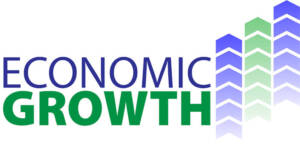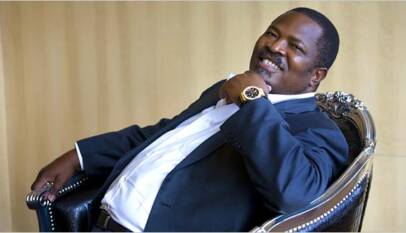Nigeria’s economy, things are looking up

By Kunle Oyatomi
More facts have emerged showing that Nigeria is on a positive path under President Bola Tinubu. While haters would hate, critics would continue to do what they do best, but the truth is that figures do not lie.
That truth has become evident 10 months into 2025, as inflation, which has devalued Nigeria and its people (apologies to Margaret Thatcher), is dropping.
According to the latest data released by the National Bureau of Statistics (NBS, the country’s headline inflation rate slowed to 18.02 per cent in September 2025, marking a decline from 20.12 per cent recorded in August 2025.
The September inflation rate decline came as the biggest fall in the last six months, according to the NBS data from April 2025.
On a month-on-month (MoM) basis, the headline inflation rate stood at 0.72 per cent, reflecting a moderation in price increases across key sectors.
This means that in September 2025, the rate of increase in the average price level was lower than the rate of increase in the average price level in August 2025.
In September 2025, the urban inflation rate was 17.50 per cent, which is 17.63 percentage points lower compared to the 35.13 per cent recorded in September 2024.
On a month-on-month basis, the urban inflation rate stood at 0.74 per cent in September 2025, representing an increase of 0.25 percentage points from 0.49 per cent recorded in August 2025.
The corresponding 12-month average for urban inflation was 24.35 per cent in September 2025, which is 9.6 per cent lower than the 33.95 per cent recorded in September 2024.
The rural inflation rate stood at 18.26 per cent in September 2025 on a year-on-year basis, representing a decrease of 12.23 percentage points from 30.49 per cent recorded in September 2024.
On a month-on-month basis, rural inflation was 0.67 per cent in September 2025, reflecting a decline of 0.71 percentage points from 1.38 per cent recorded in August 2025.
The 12-month average for rural inflation was 22.08 per cent in September 2025, 7.68 per cent lower than the 29.76 per cent recorded in September 2024.
The food inflation rate stood at 16.87 per cent in September 2025 on a year-on-year basis, representing a sharp decline of 20.9 percentage points from 37.77 per cent recorded in September 2024.
The significant drop in the annual food inflation figure is largely attributed to a change in the base year, which has adjusted comparative estimates.
The decline was driven by a reduction in the average prices of key food items such as maize (corn) grains, garri, beans, millet, potatoes, onions, eggs, tomatoes and fresh pepper, among others.
These progressive figures are obvious indicators that the economy is getting past the difficult time and Nigerians would soon begin to feel its impacts as Tinubu had always wanted.
For the citizenry, as inflation continues to drop, purchasing power would increase. Goods that have become a luxury for many can be purchased.
Likewise, when inflation eases, prices become stable, thereby businesses can plan, make long-term investments and set prices without fear of sudden cost spikes.
On a general scale, a sustained drop in inflation would strengthen the national currency, as lower inflation helps stabilise the value of the Naira.
Further predictions
The hope that some of these goodies would soon be enjoyed by Nigerians has been accentuated by the Independent Media and Policy Initiative (IMPI), which forecasts that Nigeria’s inflation will drop to 17 per cent by December 2025.
Lending voice to its prediction, Chairman of IMPI, Dr Omoniyi Akinsiju, had said: “We have observed how some critics have dismissed the decline in the inflation rate as being of no consequence to the people, insisting dismissively that prices have not changed in any way to affect the mass of the Nigerian people.
“We consider this an expression of the intention not to acknowledge the federal administration’s positive strides. Empirically speaking, the Nigerian economy is now in a disinflationary dispensation. Disinflation is a temporary slowing of the pace of price inflation and is used to describe instances when the inflation rate has reduced marginally over the short term.”
But the biggest point, which points to the fact that in no distant time all would be well, is this: “Nigeria’s inflation story in 2025 is taking an unusual turn because, for the first time in nearly a decade, the country is witnessing a meaningful and sustained slowdown in consumer prices.
In relative terms, that is a 17.5 per cent reduction compared to the January level, a pace of disinflation rarely seen in Nigeria’s modern economic history.”
Nigeria’s hope is about to be restored. A little more patience is all that will be needed for its manifestation under this administration.
Oyatomi, Former Editor (Sunday Vanguard), Author (FINGERPRINTS 2008) and a Lawyer, is a member of the Board of Independent Media and Policy Initiative (IMPI), a Think Tank based in Abuja.
CP Orutugu assures Aguata, Otuocha of neutral Police stand ahead of gov poll
Stanley Ihedigbo As part of ongoing security engagements ahead of the November 8, 2025, An…






